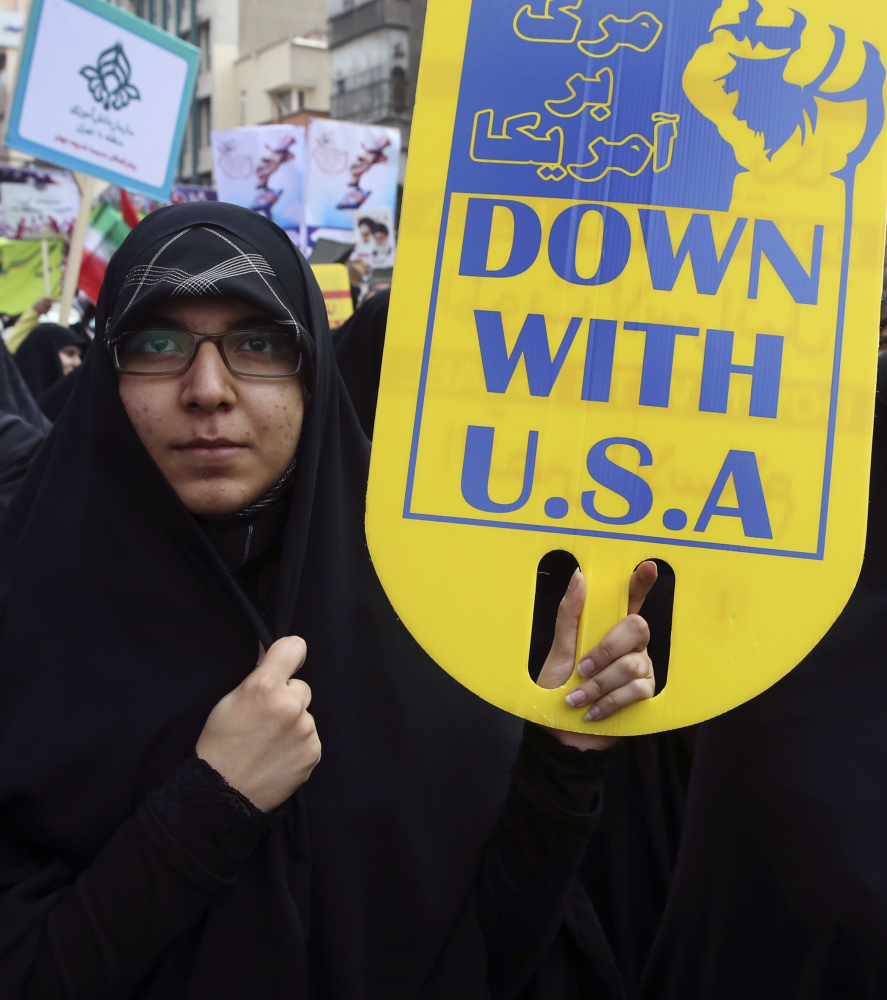Editor’s note: This story is part of an occasional Associated Press series examining the issues at stake in the presidential election between now and Election Day. Read more from “Why it matters.”
THE ISSUE: Last year’s nuclear deal has removed for now the threat of a U.S.-Iranian military confrontation. But the deal rests on shaky ground.
The accord curtailed Iran’s nuclear program, pulling it back from atomic weapons capability in exchange for the end of various oil, trade and financial sanctions by the U.S. and six other world powers. The sides fulfilled their pledges in January.
Relations between the U.S. and Iran have warmed since the agreement, to the dismay of U.S. allies like Israel and Saudi Arabia. The once hostile foes are cooperating to end Syria’s civil war. Each military is staying out of the other’s way as they battle the Islamic State group in Iraq. Nuclear consultations occur daily.
But the next president could have his or her hands’ full. The Iranians are threatening to renege unless they receive greater economic benefits. In Congress, many Republicans and even some Democrats still want the deal’s collapse.
WHERE THEY STAND:
Hillary Clinton helped lay the groundwork for the nuclear deal. As secretary of state, she tasked two of her most senior aides to meet secretly with Iranian officials. Those talks set the framework for the larger negotiations.
When the nuclear accord went into effect earlier this year, Clinton hailed it as “an important achievement of diplomacy backed by pressure.”
Still, the Democratic presidential candidate has staked out a tougher tone than President Obama.
Republican Donald Trump has called the Iran deal “stupid,” a “lopsided disgrace” and worse. He says that unlike Obama’s diplomats, he would have been prepared to walk away from negotiations. But Trump doesn’t want to tear up the accord.
Instead, he speaks of tougher enforcement and possible renegotiation. Trump has railed against several of the deal’s particulars, such as the timespan of restrictions on Iran’s enrichment of uranium and other nuclear activity. He says Iran got too much relief from economic sanctions. It’s unclear, though, how he might persuade Iran to accept less favorable terms in a done deal.
WHY IT MATTERS:
Until nuclear diplomacy gained speed in 2013, a U.S.-Iran war was a distinct possibility. Both Clinton and Trump say they would use force if necessary to prevent Tehran from acquiring the bomb. If the deal unravels and Iran increases its enrichment of uranium toward weapons capability, a U.S. military intervention would be back in play.
Any conflict risks broad consequences. Iran can retaliate by disrupting global fuel supplies from the Persian Gulf, through which a fifth of the world’s oil flows. It can unleash its proxies Hezbollah and Hamas on U.S. ally Israel.
If Iran sticks to the agreement, the next president may still face big decisions, depending on how its government evolves.
Send questions/comments to the editors.



Success. Please wait for the page to reload. If the page does not reload within 5 seconds, please refresh the page.
Enter your email and password to access comments.
Hi, to comment on stories you must . This profile is in addition to your subscription and website login.
Already have a commenting profile? .
Invalid username/password.
Please check your email to confirm and complete your registration.
Only subscribers are eligible to post comments. Please subscribe or login first for digital access. Here’s why.
Use the form below to reset your password. When you've submitted your account email, we will send an email with a reset code.